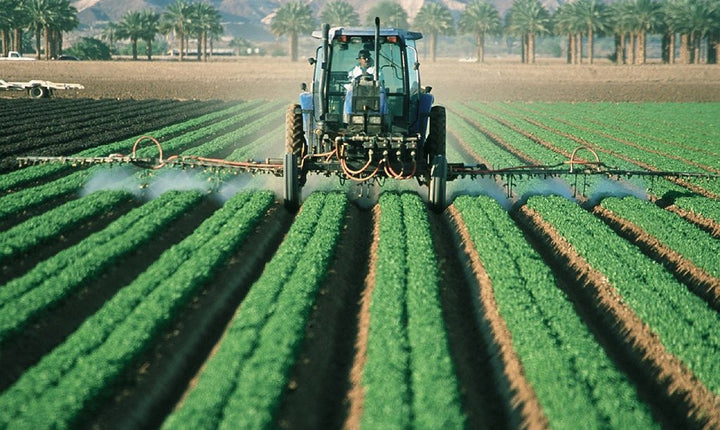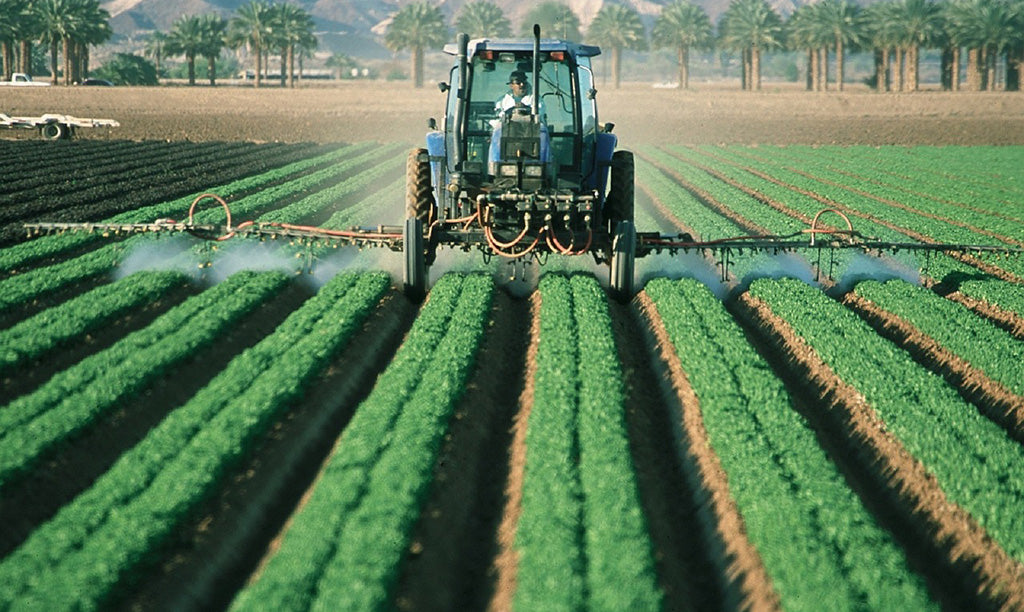Raise your hand if you’ve read the recent New York Times article about Monsanto’s “legislative gift.” If not, chances are you’ve heard the following words buzzed about : “PCBs,” “pesticides,” “organic.” Right? For some, these words may be isolated terms with their own individual baggage, but when tied to Monsanto the dots connect quickly. We’re going to spell out the importance of these words, how they’re connected and what it means for your physical health. And yes, it will all boil down to reasons why you should grow, buy and eat organic. (Would you expect any less from us?)
It was recently exposed that the House of Representatives passed a chemical safety bill that had a special little clause letting biotech giant Monsanto off the hook for any lawsuits that were thrown its way regarding PCBs. We’ve seen it before--a big company given a pass by the government--but the implications of this legislation give Monsanto an advantage while the environment and its human inhabitants get off a little less lucky (read “less lucky” as “sickly with life threatening diseases.”)
A little background
Monsanto is an agriculture biotech company with a focus in agrochemicals, genetically modified seeds and pesticides. Along with the three other largest seed biotech companies in America, they control over 80% of corn production and over 70% of soybean production in the US. Their accomplishments are lengthy, but that doesn’t mean their actions are based on ethics -- their invention and use of PCBs (polychlorinated biphenyls) still faces tough scrutiny (PCBs were banned in 1979), and they’ve endured innumerable lawsuits in past years due to the harmful effects PCBs have had on the environment and human health.
So why would Monsanto get a pass from the government if they’re creating harmful products? Sadly, their heavy stake in American agriculture makes them very much responsible for feeding our Standard American Diets.
What are PCBs?
PCBs are a name for a larger group of 209 synthetic chemicals. Used in a variety of products ranging in use from electrical to automotive, their toxic build up can be found in water, air or solid waste, and it’s virtually undetectable to human senses. PCBs are known to be harmful to the environment since their waste can build up, but it’s even more harmful to humans who absorb the waste’s negatives effect through food (fish who have been living in contaminated water), drinking water, or air. PCBs are linked to stunted neurological development, cancer, endocrine disruption and reproductive disorders.
But PCBs were banned in ‘79, so I’m cool, right?
Not at all. Even though PCBs are no longer produced, the build up of PCBs in the environment is still great enough that it’s affecting our health today.
Once exposed to PCBs, the same chemical that’s built up in the environment builds up in the body’s fatty tissues, making it hard to detoxify and easy to collect. One study showed that exposure to PCBs caused non alcoholic fatty liver disease.
What’s the point?
Now that you know all that you know, let’s visit one important piece of information: Monsanto was the only company who manufactured PCBs. So even though PCBs no longer exist, we know their effects are still heavily felt, not to mention in the form of environmental stress and serious human health concerns. This little legislative paragraph is giving a them a major pass on something they should be held accountable for.
So why are we hooting and hollering about all of this?
This Monsanto clause is a reminder that this company is still creating commercially used products that could be potentially harmful to the environment and to humans. (You could really dive deep into all the info about their Roundup pesticide). And just look at the power PCBs still hold even in their banned state. All we’re saying is be wary. This is an opportunity to think about where our food is coming from and to put our money where our mouths are.
A little call to action.
So we ask you to think about what you’re consuming. Whenever possible, buy organic, whole, clean foods. Eat those foods, and that nutrition will serve you well. If buying foods that are processed, find out if they’re coming from a brand whose moral compass is one you can also follow. Meaning, they’re using non-GMO, organic ingredients. Are you buying local to support those organic and sustainable farms that are close to you? Hopefully! That local, seasonal nutrition better serves you in a holistic sense too--you’re getting nutrients from the environment in which you live, allowing you to connect to the nature around you and physically adapt to your surroundings.
So, yes, this is a long explanation to say a simple notion, but hopefully you agree that all of these seemingly small items are worth the reminder -- let’s remember what we’re getting ourselves into when we buy blindly and just assume that we’ll be okay. Be aware of what your money says when it does the talking. Take care of your and your family’s bodies the best way you can. Eat wholly and cleanly and with the intention of good health.





